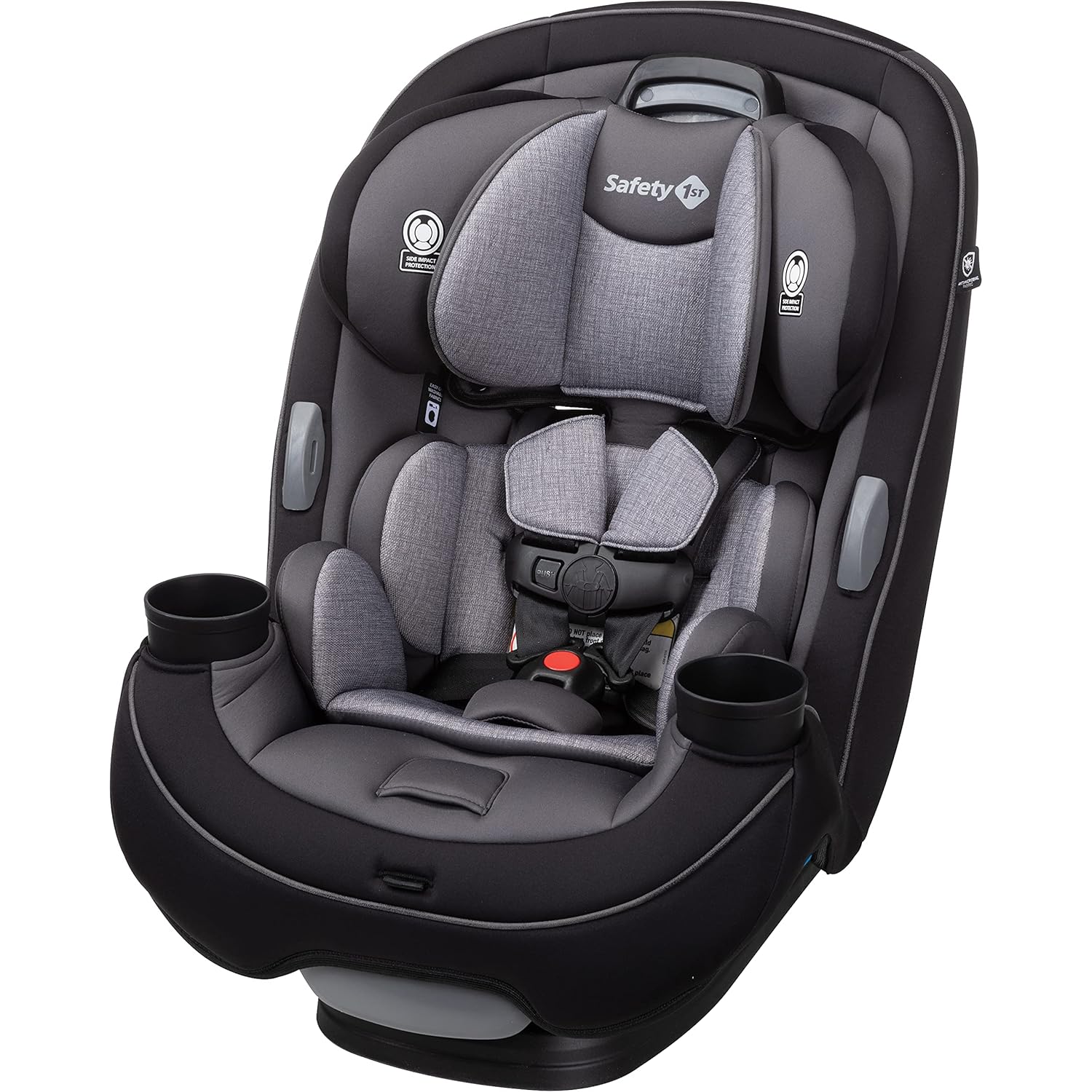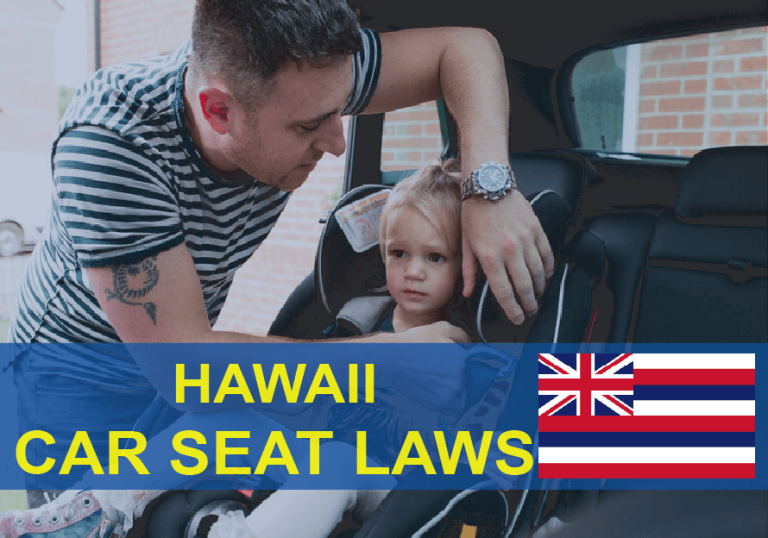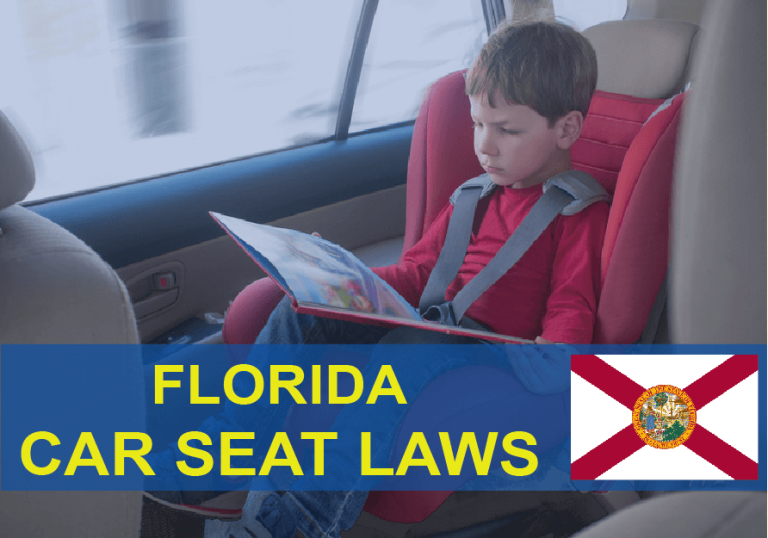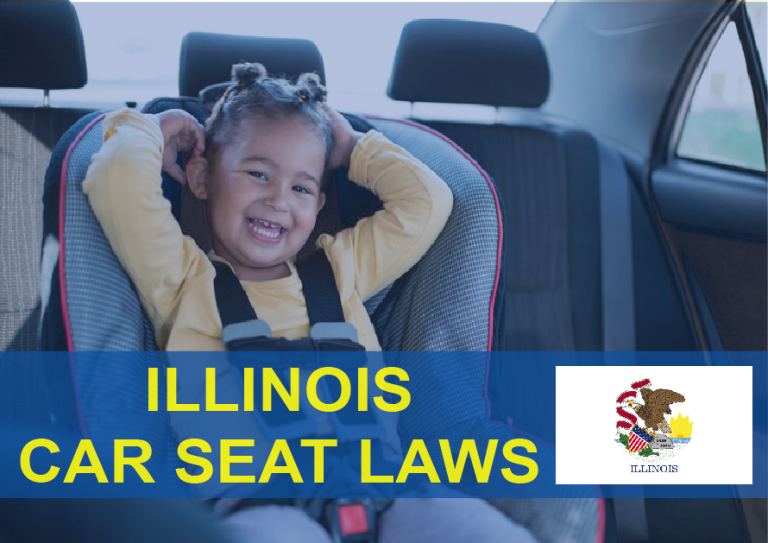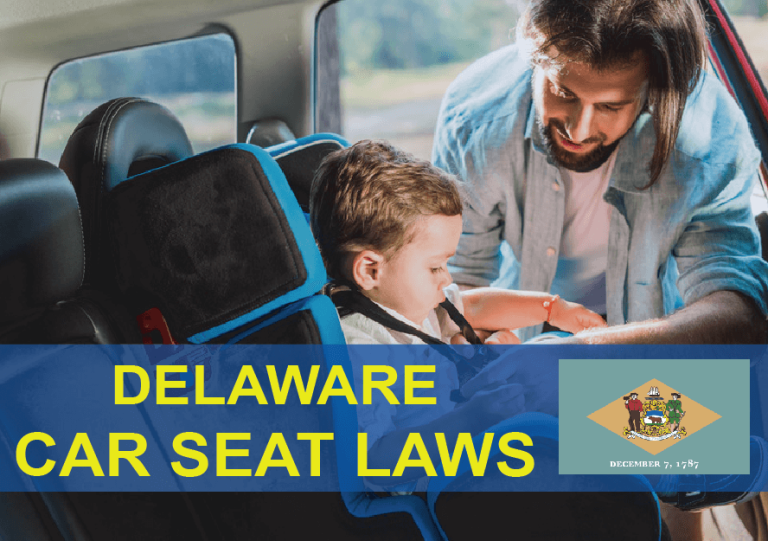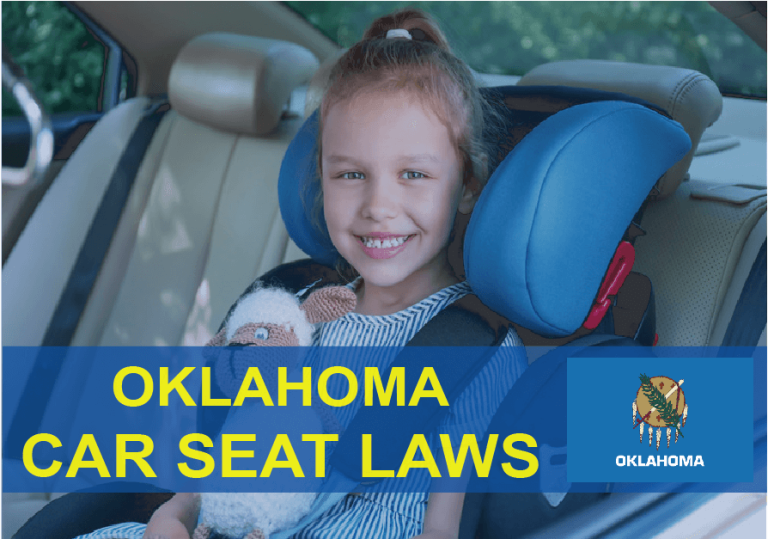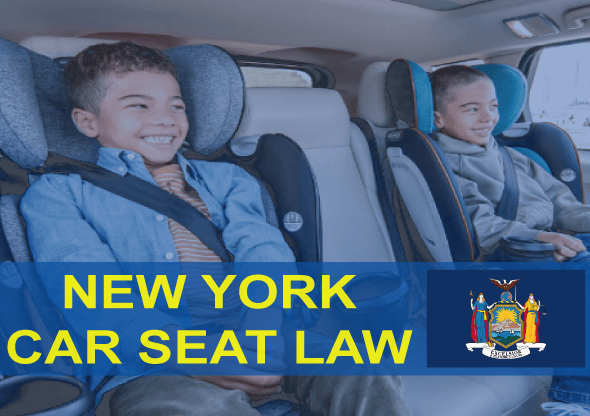Iowa is one of the states in the US which follows child restraint laws very strictly. These laws have been made to help protect your child from injury or death in a car accident. The main focus of these laws is to ensure that children are properly secured in a child restraint system when they are in a vehicle. Understanding these laws can be confusing, so we’ve created this guide to help you understand everything you need to know about Iowa car seat laws.
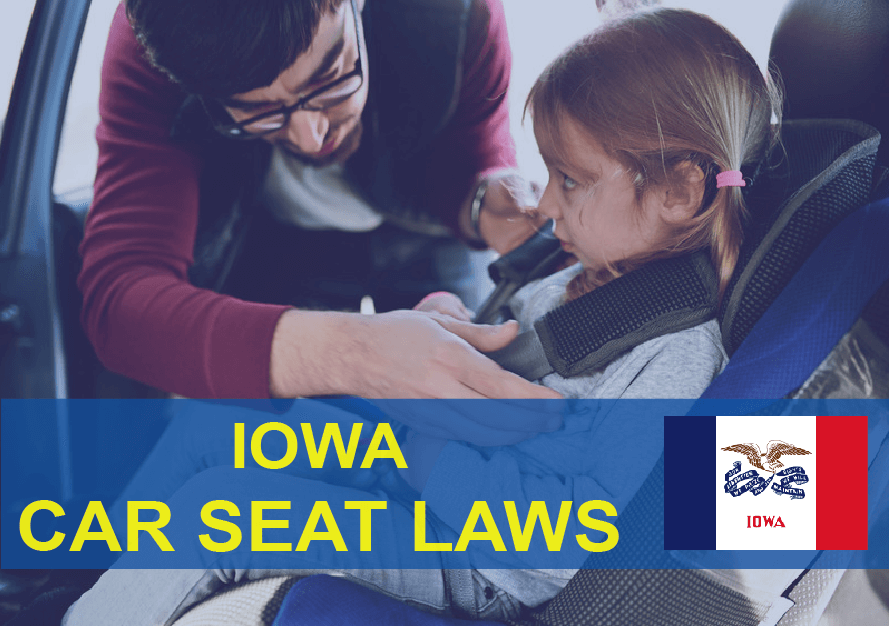
- Iowa Car Seat Laws
- Iowa Rear-facing Car Seat Law
- Iowa Forward-facing Car Seat Law
- Iowa booster seat law for young kids
- Requirements for children to use the front seat in Iowa
- Taxi Car Seat Law in Iowa
- Law on leaving a child in a car in Iowa
- Penalties For Violating Iowa Car Seat Laws
- Is it Illegal to Smoke in a Car with a Child in Iowa?
- Car Seat Inspections Help in Iowa
- Child passenger safety-related videos Iowa
- More information and resources on car seat safety Iowa
- USA Child Passenger Safety Laws by State
- Best Car Seats of 2022: Ranked by Our Experts
- Find trusted caregivers for your every need
Iowa Car Seat Laws
According to the child restraint law of Iowa,
“A child under one year of age and weighing less than twenty pounds who is being transported in a motor vehicle subject to registration, except a school bus or motorcycle, shall be secured during transit in a rear-facing child restraint system that is used in accordance with the manufacturer’s instructions.”

Iowa Rear-facing Car Seat Law
Infants under the age of one year and weighing less than 20 pounds are required by Iowa law to ride in rear-facing seats. However, the AAP (American Academy of Pediatrics) advises parents to keep their kids in rear-facing seats until they are 2 years old or until the seat’s maximum weight (up to 40 pounds) and height requirements have been fulfilled.
Iowa Forward-facing Car Seat Law
After reaching the rear-facing car seat’s safety limit, you can put your child in the forward-facing seat. Please follow the instructions provided by the seat manufacturer when using the forward-facing seat.
According to experts, most children outgrow rear-facing seat requirements by the age of four, while they may remain within forward-facing limitations until the age of eight. This indicates that the appropriate age and weight for this seat are 4–8 years and 40 pounds, respectively.
Iowa booster seat law for young kids
The use of booster seats is encouraged by the state of Iowa, although no precise age or weight limits are specified in any law.
When a child’s weight and height exceed the manufacturer’s forward-facing car seat weight and height standards, he or she can progress to a booster seat. Typically, this occurs at the age of eight, and the children may remain within the booster seat restrictions until the age of twelve.
According to the Iowa Governor’s Traffic Safety Bureau, children can move to booster seats once they weigh 40 pounds or more and stay in them until they reach 4’9″ in height or 80 pounds, whichever comes first. However, experts advise focusing on height because seatbelts were meant to suit an average adult standing at 4’9″ or taller.
Never use a booster seat with only lap belts. The safest option is to strap your child into a booster seat with shoulder and lap belts. Ensure that the lap belt fits low and tight over the thighs (not the stomach) and that the shoulder belt crosses the chest area tightly.
Requirements for children to use the front seat in Iowa
After the age of 12, it is recommended that you consider having your child in the front seat safe. However, according to the AAP, your child is safest in the rear seat, and the appropriate age for the front seat is 13 years old. This is due to the fact that airbags are meant for adults and can hurt your child in the event of an accident. All children under the age of 18 must use an appropriate child restraint system or a safety belt.
If you are confused about whether your child should use a booster seat or an adult seat belt only, this simple test will help you decide.
The Five-Step Seat Belt Fit Test:
- Is the child able to sit all of the way back against the auto seat?
- Are the child’s knees able to bend comfortably at the edge of the vehicle seat?
- Is the belt crossing over the shoulder between the neck and arm?
- Is the lap belt as low as possible, with the thighs?
- Is it possible for the child to remain in this position the whole journey?
If you answered “no” to any of these questions, your kid is not ready for an adult seat belt and still requires a booster seat to travel safely in the car. Boosters are popular with kids since they are more comfortable!
Taxi Car Seat Law in Iowa
Taxis are not responsible for enforcing the law. Instead, it is the responsibility of the parents. According to Iowa law, the guardian or parents, not the taxi driver, shall be held accountable for the taxi driver’s negligence. If you want to say it another way, taxis are not exempt from the car seat law.
Law on leaving a child in a car in Iowa
In Iowa, there is no law that addresses situations in which a child is left alone in a car. However, the state has child endangerment legislation that may apply if you expose your child to physical or emotional harm. We do not suggest leaving your child alone in a vehicle for any length of time.
Penalties For Violating Iowa Car Seat Laws
A violation of Iowa’s Child Restraint Devices law is classified as a misdemeanor. A violation of the law’s safety belt or safety harness regulation is penalized by a $50.00 fine. A violation of the law’s child restraint system requirement is penalized by a $100.00 fine. You may not be convicted of a first violation of the child restraint system provision of the statute if you can show the court within a reasonable period that you purchased or acquired a child restraint system that meets federal motor vehicle safety requirements.
Is it Illegal to Smoke in a Car with a Child in Iowa?
In Iowa, smoking in a car with children is not illegal. But, we do not believe it is a good idea to smoke in your car when there are children inside. Secondhand smoke is dangerous, and it’s best to avoid smoking in a vehicle with a kid sitting inside. Secondhand smoke exposure causes a variety of illnesses in children, including asthma and pneumonia, as well as thousands of preventable hospitalizations. Secondhand smoke causes SIDS and can cause lung cancer and heart attacks if exposed over time.
Car Seat Inspections Help in Iowa
- Bans on Smoking in Vehicles Carrying Children
- Blank Children’s Hospital Car Seat Installation Assistance
- Cedar Rapids Police Department Child Safety Seats
- City of Dubuque Child Passenger Safety Project
- City of Indiana Seat installation and inspection program
- City of Urbandale Car Seat Inspections
- Coralville Car Seat Safety
- Iowa City Child safety seat inspection
- Is it illegal to leave a child in the car?
- Johnston City Car Seat Inspection Program
- Newtown Child Safety Seat Inspections
- NHTSA Car Seat Inspection Stations
- North Liberty Fire Department Child Safety Seats
- Scott County Child Passenger Safety
- Waukee Fire Department Car Seat Safety Inspections
- Webster City Fire Department child seat installation program
- Winneshiek Medical Center Car Seat Safety Checks
Child passenger safety-related videos Iowa
Installing a Rear-facing Car Safety Seat
Ask the Expert: Forward-Facing Car Seats
Booster Seat Safety
Live Q&A: Safety tips for car seats and booster seats
More information and resources on car seat safety Iowa
USA Child Passenger Safety Laws by State
FIND YOUR STATE’S CAR SEAT LAWS
Click on your state on the map below to see your state’s car seat law



